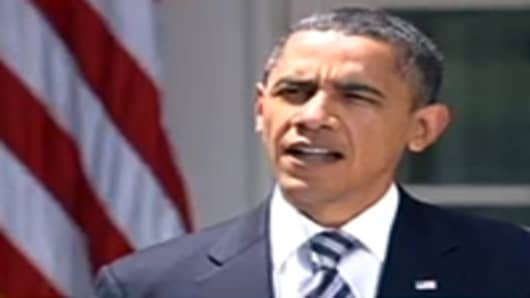The U.S. Senate on Tuesday approved a last-minute deal to raise the U.S. borrowing limit to avert a catastrophic debt default by the world's largest economy. The bill passed 74 for, and 26 against.
The vote came on the day of the deadline to lift the debt ceiling . On Monday, the Republican-controlled House of Representatives passed the $2.1 trillion deficit-cutting plan. The House vote of approval had been considered the biggest obstacle to solving the crisis.
The legislation will now be sent to President Barack Obama, who has said he is anxious to sign the bill.
Raising the U.S. government's $14.3 trillion borrowing limit removes the risk of the U.S. not being able to borrow money to pay its bills.
The compromise plan calls for spending cuts over 10 years, but no new taxes, and creates a powerful new congressional committee to recommend a deficit-reduction package by late November. It also raises the U.S. borrowing limit into 2013.
The bill's passage signaled the end was in sight to a months-long partisan battle that had deadlocked the U.S. political system, alarming its international allies, shaking financial markets, and diminishing the country's global image.
Up to the last minute, financial markets worldwide had been rattled by uncertainty over whether the compromise plan could pass the House and Senate in the face of objections from conservative Tea Party Republicans and liberal Democrats.
Earlier Tuesday, the U.S. dollar fell against the Swiss franc to a new low, and gold hit another record, as investors flocked to assets considered safe, worried about a bleak outlook for the world economy and a possible cut to the U.S.'s triple-A credit rating.
Mohamed El-Erian, co-chief investment officer of PIMCO, which runs the world's largest bond fund, said attention would now focus on a possible U.S. downgrade "and all the detrimental effects of weeks of political squabbles on household and corporate confidence, economic governance, growth, employment, inequality and America's standing in the global economy."
Questions remain over whether the U.S. credit rating will be downgraded, deficit deal or not.
Treasury Secretary Timothy Geithner told ABC News in an interview that he didn't know whether the U.S. will be downgraded. "It's not my judgment to make," he said. Geithner also said he fears world confidence in the U.S. was damaged by "this spectacle."



